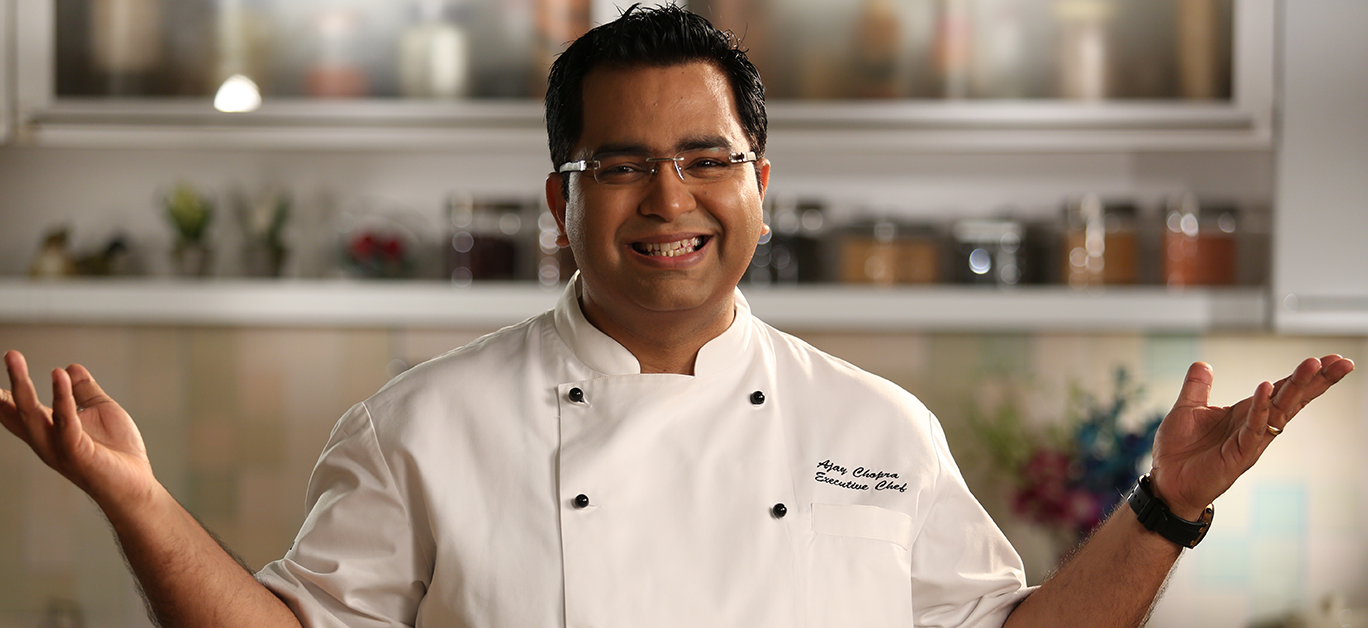Celebrity chef Ajay Chopra is a Mumbai-based chef, TV host and a judge for high-profile culinary competitions in India. His repute is not just confined to India; he has spearheaded many five-star deluxe hotels all over the world in his capacity as an executive chef. Spaces like the Marriott, Mint Leaf, Burgundy Box and more have witnessed his culinary brilliance.
Known for his contributions to contemporary or progressive cuisine, Ajay’s role as a mentor and an innovator in the industry has cemented his place as a chef who not only cooks, but brings innovation to the very art of cooking. I caught with Ajay to discuss the industry, vegan cooking and his favourite foods to enjoy at home.
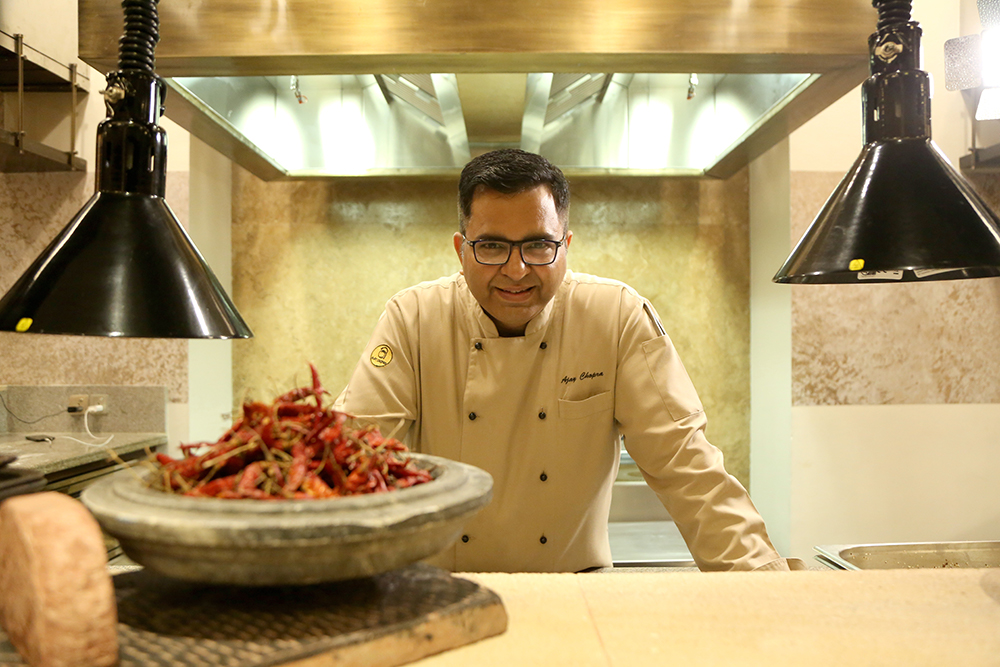
You’ve been in the industry for quite some time. Would you have done anything differently when first starting out?
Well, I could have definitely done with more chefs lending open knowledge. Anything we wanted to learn new we were forced to go through a very long and tedious process of cajoling, and polishing the chef’s egos. Also, I could have done with more exposure in my starting years.
You’ve cooked in some really intimidating kitchens. Was there anything you did to build your confidence and ensure you always maintained the drive?
As they say, Rome wasn’t built in a day, and so isn’t the life of each successful chef. The kitchens in those times could be very daunting and very demanding. Each day you had to prove yourself and the more you did, the expectations grew higher. But small successes made some bigger ones. I started to celebrate my small successes and believed in moving forward no matter what.
What is one food trend you wish would just go away?
Fusion food.
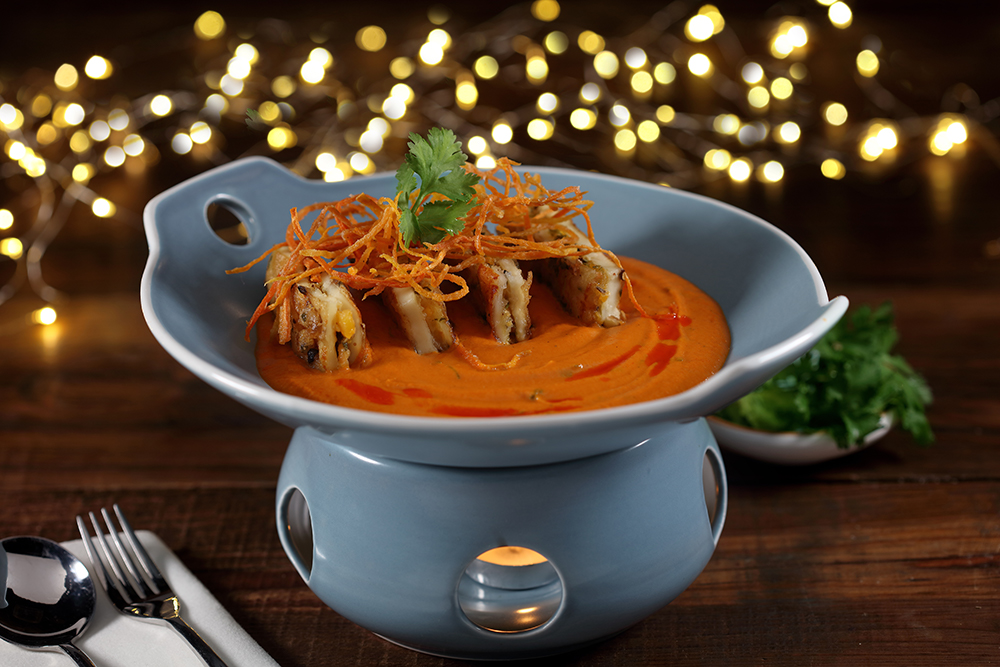
Hiring and retaining talent is one of the biggest challenges in any industry, but most especially in hospitality. How do you speak to your staff about career growth and progression?
I believe understanding your people is the most important thing. People are your biggest assets, and understanding them goes a long way. Human beings need to be treated as human beings and working with them while utilising their strengths is the most important thing.
What is your favourite dish to cook at home?
I love to cook pot meals at home and a lot of coastal Goan food.
What’s your favourite takeaway or comfort food? Which is your favourite place to dine?
My favourite takeaway is Kolkata rolls, biryani and my comfort food is rajma chawal.
What exactly is vegan cooking and how do you go about it?
Vegan cooking involves maximum use of plant-based products and to avoid any animal-based food products including honey. For me personally, I find it interesting we have different varieties of vegetables in different seasons, so my approach is to serve the season’s best vegetables and fruits as vegan options.
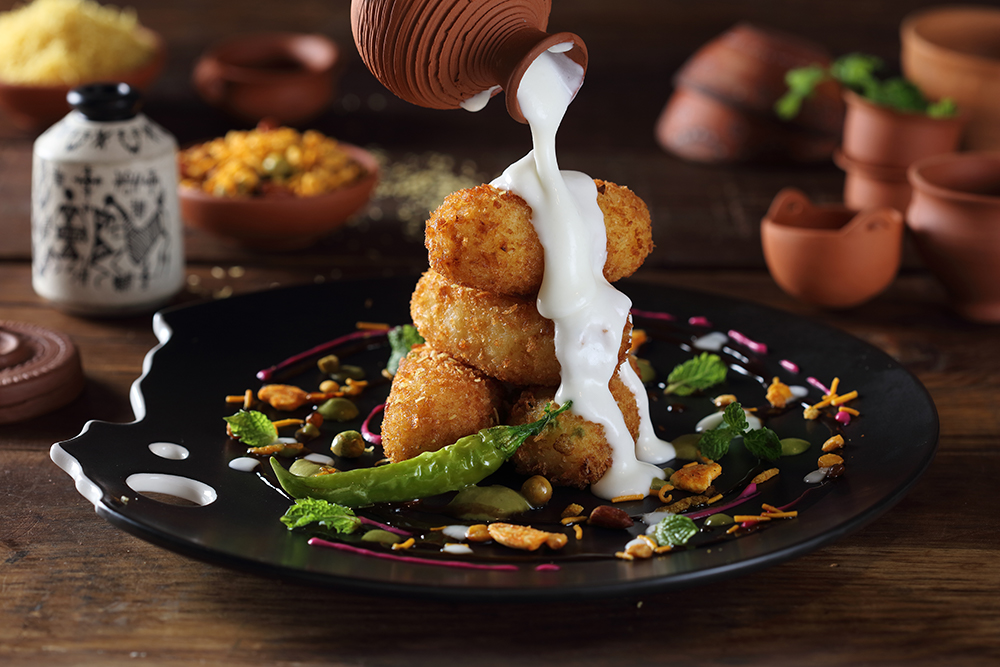
Vegan cooking/ vegan restaurants; how easy/difficult it is; what are your previous experiences with it. What is the secret of a good vegan kitchen? What about the suppliers, are there enough in India currently and easily accessible?
Vegan cooking is exciting, all you have to know is how to use plant-based ingredients to extract maximum flavours. Right knowledge of produce and maximum utilisation of ingredients is a secret to a good vegan kitchen. We don’t find any hurdles in getting fresh produce from farmers and everything is easily accessible.
Have you ever worked with meat substitutes?
Yes, I really enjoy using meat substitutes, soya chaap is widely enjoyed as a meat substitute and it is versatile too. It is an excellent source of protein with a good shelf life.
Meat-based substitutes can give a meaty texture but for a meat lover, substitutes fail to deliver a meaty taste. There are ingredients like nutritional yeast available in the market, but those are very expensive.
How can restaurants, hotels and chefs communicate the approach of innovative sustainable plant-based food/ food chains to others?
Sustainable food is becoming a necessity nowadays. I am a meat lover but I like to eat and serve vegetables too. Many restaurant chefs across the world are making vegetables the main attraction of a meal, and not shying away from using roots, peels and trimmings as ingredients.
Adding vegetarian or vegan menus to the menu: what is the trend/experience with this?
A responsible, sustainable, eco-friendly way of eating is the way forward.
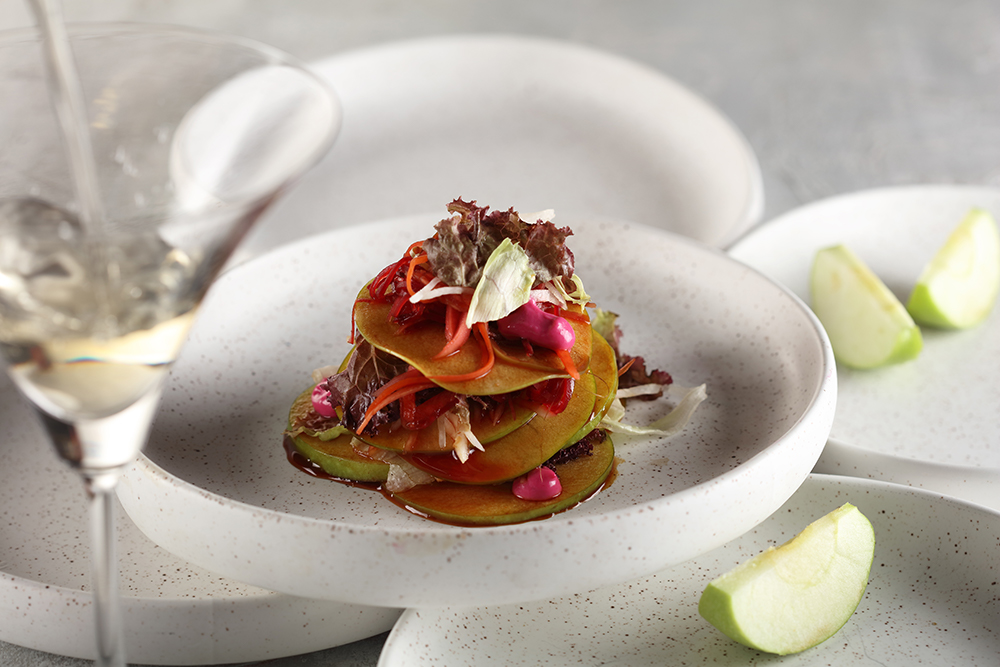
Tell us about your two most popular preparations in line with this concept (sustainability).
We created a dish called poush pate at Vedic Kolkata, using jamikand and vegetable trimmings which tasted like haleem, served with crispy chana dal and khakhra. For the winter menu at Paashh we are creating a dish where scooped potato is cooked slowly with butter and aromatics, trimming is transformed into espuma and peels are crisp fried served with leek ash. Simple ingredients like jamikand and potato can be transformed into a beautiful dish; all we need to use is the right technique.
Please tell us more about the concept of zero wastage and how you have contributed to it so far. Does this put pressure on your budgets?
We learn from our homes; my mum never threw any food trimmings into garbage bins. In so many of my restaurants we make soups, base stocks, dishes and even condiments using vegetable trimmings. It doesn’t put pressure on budgets, in fact it lowers down the purchase cost.
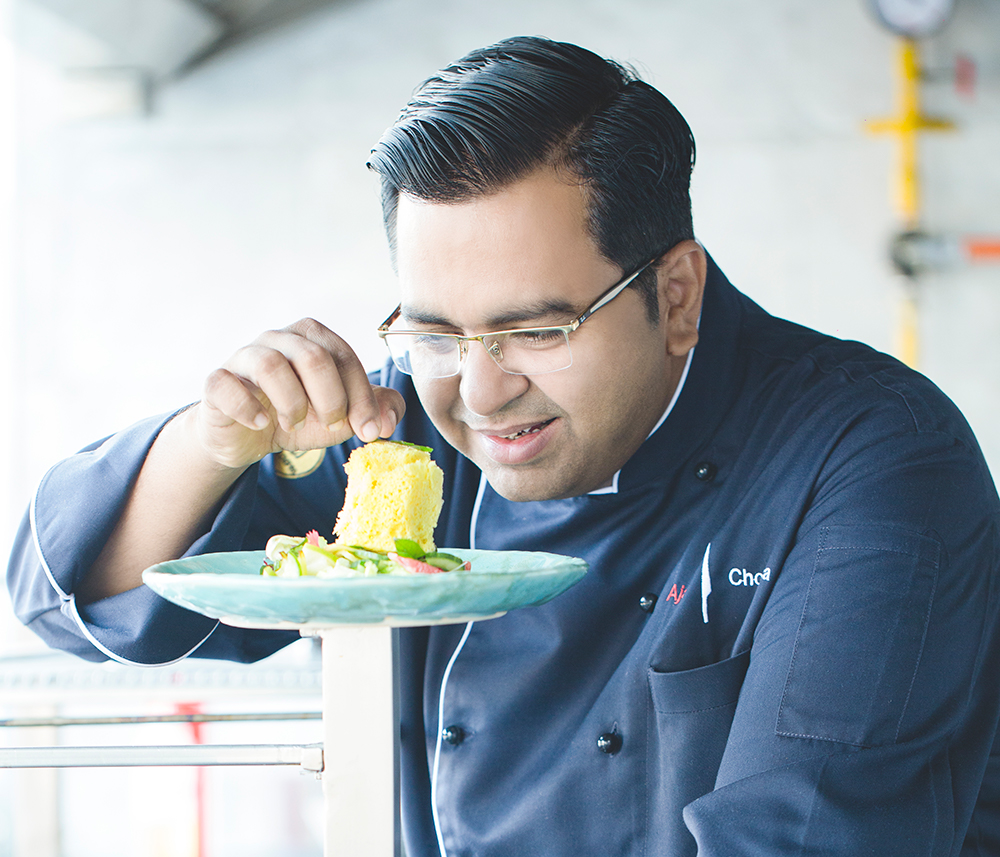
Tell us about the concept of ‘farm to fork’ and how it helps to promote the idea of sustainability and good health. How do you think we can create awareness amongst more chefs and restaurants and hotels so that they contribute to this initiative?
Fresh green saag (leaves) during the winter is cooked at home after being plucked from the back-yard gardens. This is a farm to fork concept which is commonly found at every home in rural India, we have to go back to basics and explore seasonal produce because all these seasonal ingredients are packed with nutrition required for a particular season, for example, winter greens are rich in iron and vitamins which builds our immunity against harsh winters. Awareness can be created by planning seasonal menus, produce based farmer’s brunch menus, direct association with farmer’s group to supply in hotels, restaurants and catering establishments.
For a long time, India had more vegetarians as compared to those who ate non-vegetarian food, do you think we are going back to the previous times where more people are now advocating vegetarianism?
The Indian subcontinent is gifted with six seasons and every season brings with it a huge variety of produce. Many communities in India prefer vegetarian food over meats and seafood. Vegetables are a cheap source of nutrition and available in abundance, can be cooked easily and the slow cooking techniques in Indian kitchens imparts a delicious flavour to these vegetables.












